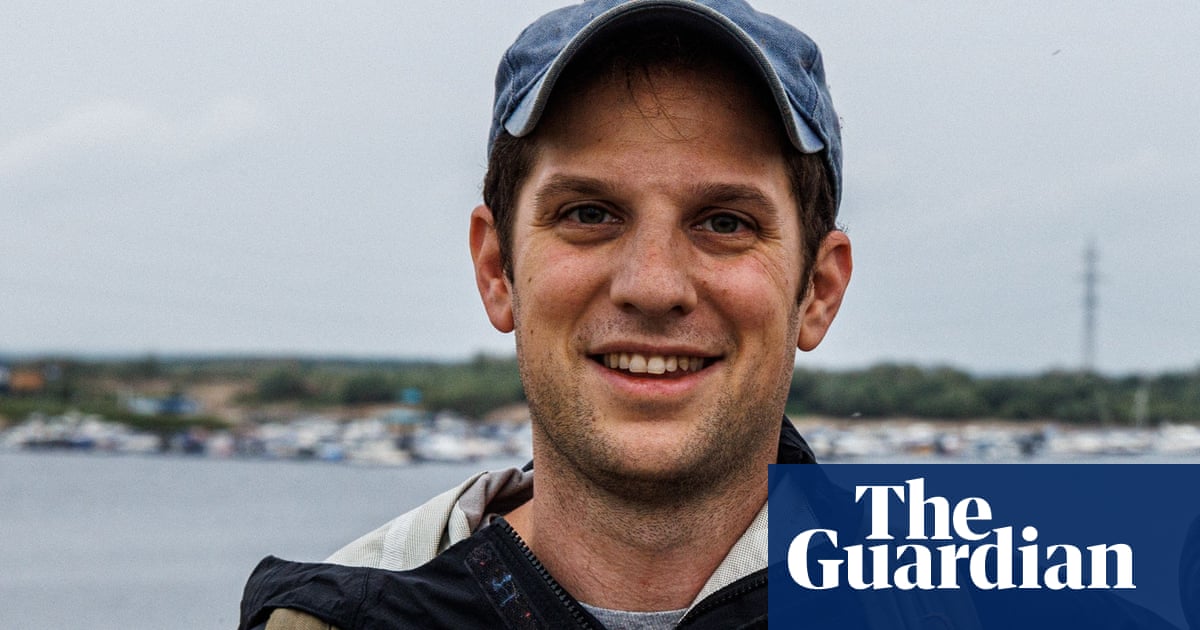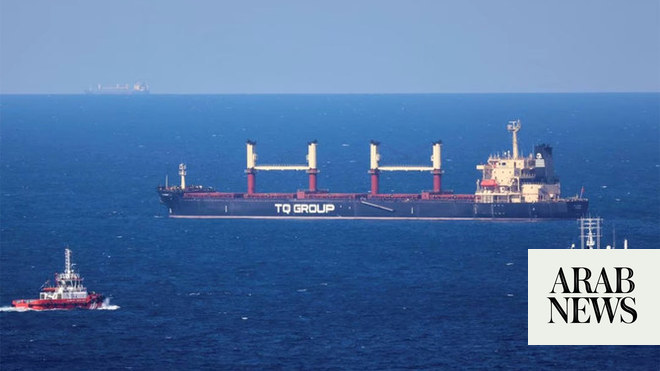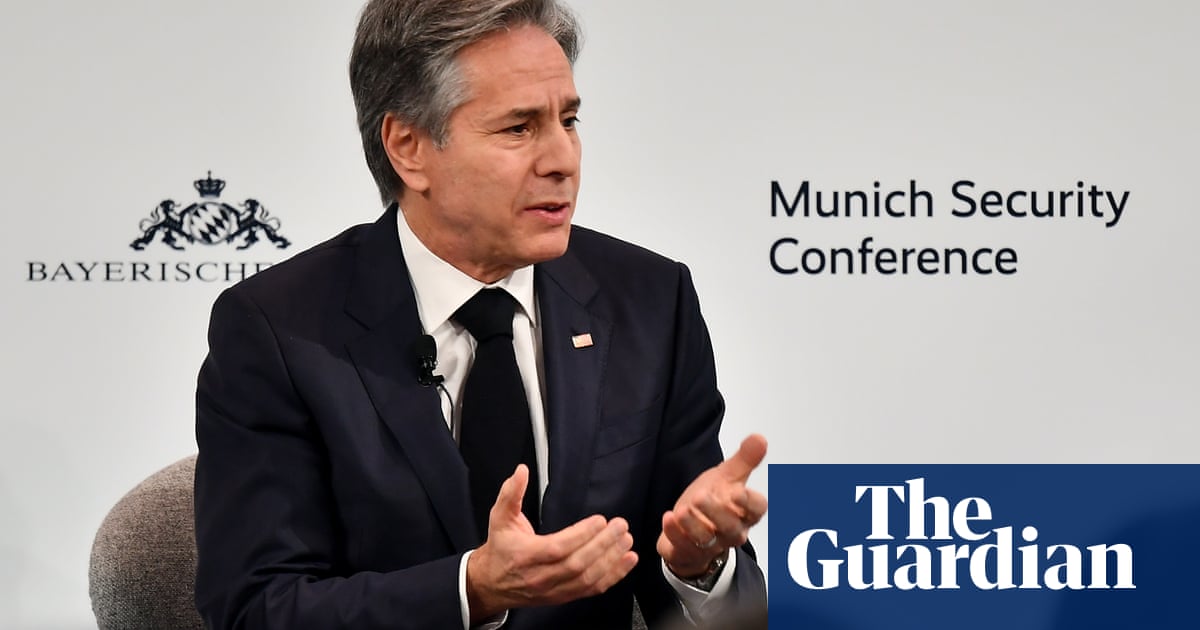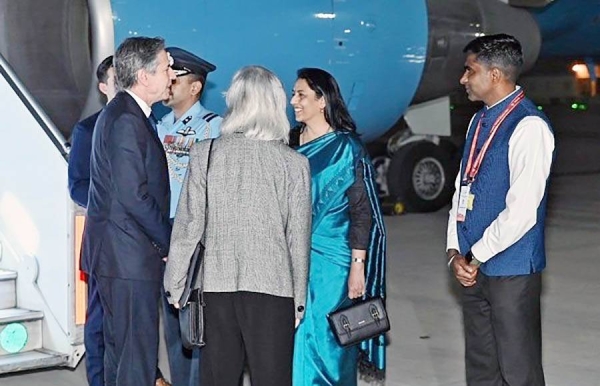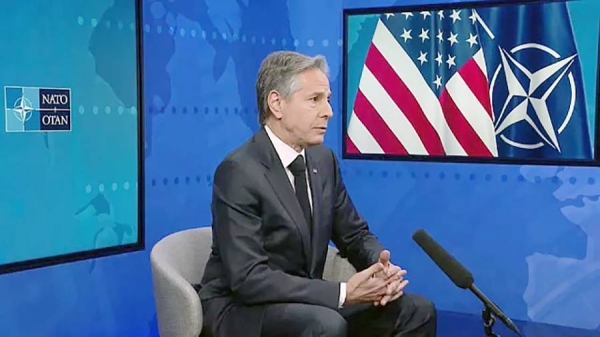
Russia’s invasion of Ukraine in February last year triggered Finland’s application to NATO along with that of Sweden.
On Tuesday, Helsinki completed the fastest accession process in the alliance’s history. But Sweden, for the moment, remains left behind.
Meanwhile, the war in Ukraine rages on, and China’s position is sparking fresh concerns from NATO chief Jens Stoltenberg who has accused Beijing of spreading the Kremlin’s wartime narrative and sustaining its economy.
Euronews’ Efi Koutsokosta spoke to US Secretary of State, Antony Blinken, in Brussels to discuss Finland, Sweden, Turkey, Taiwan and US-China relations, for this latest episode of the Global Conversation.
Finland on Tuesday officially became the 31st member of the NATO military alliance.
But in a statement, Finnish President Sauli Niinistö insisted that “Finland’s membership is not complete without that of Sweden.”
Euronews began by asking Antony Blinken for his thoughts on Sweden’s chances of joining the alliance.
“I’m convinced that it will happen. It will happen soon. I fully anticipate that by the Vilnius summit, the leaders’ summit of NATO, that’ll take place in July, that Sweden will join Finland as the two newest members of NATO.
“There’s a process. And of course, virtually every NATO country has already ratified Sweden’s membership. Turkey and Hungary have not yet.
“But based on everything I heard, including virtually every ally in the meetings that we had just today and yesterday, calling for Sweden to join Finland as soon as possible.
“And I think with the leaders summit coming up in Vilnius, again, I would anticipate that that process will be complete by Vilnius,” Blinken said.
When Turkey’s parliament ratified Finland’s application to join NATO in late March, it lifted the last hurdle in the way of the Nordic country’s long-delayed accession into the Western military alliance.
But Ankara has stalled Sweden’s bid over its stance towards groups it considers to be terrorist organizations, notably concerning militant Kurdish groups and people associated with a 2016 coup attempt.
“Turkey has legitimate interests, and it’s worked directly and well with both Finland and Sweden to try to address some of those interests and concerns. I think you’ve seen the success of that process manifest itself with Finland’s accession to NATO.
“And again, I fully anticipate it’ll be the same thing for Sweden in the weeks and months ahead. And in any event, I would anticipate by the Vilnius summit.”
Euronews asked the US Secretary of State if he thought Turkey had been resisting NATO expansion in a bid to encourage Washington to provide Ankara with F-16 fighter jets.
“For us, that’s a totally separate question. We support Turkey getting an upgraded F-16 program to include new F-16s, to include modernizing existing F-16s. That is for us, for the Biden administration, independent of the accession process to NATO or for that matter, any other question,” he said.
The Chinese president, Xi Jinping, visited his Russian counterpart, Vladimir Putin, in Moscow in late March, with a peace plan in hand.
China so far says that it wants to stay neutral when it comes to this war. Euronews asked Blinken if he saw that position changing.
“First, the peace ideas that the Chinese put on the table, some of them are positive. Indeed. They reflect things that China has said for a long time and that many of us have said for a long time.
“But the very first element of what it put on the table, sovereignty, that should be the focus and China’s focus should be on convincing Russia to actually respect Ukraine’s sovereignty and to give back the territory that it seized by force in violation of the United Nations charter, in violation of Ukraine’s sovereignty.
“I think China’s also trying to have it both ways. It wants to be seen as trying to advance peace and at the same time, it continues to support Russia in different ways, rhetorically making its case in international institutions, advancing Russian propaganda about the aggression. And as we’ve said some weeks ago, even considering providing Russia with lethal assistance.”
French President, Emmanuel Macron, and the President of the EU Commission, Ursula von der Leyen, are holding a trilateral meeting on Thursday with their Chinese counterpart Xi Jinping, on the sidelines of the French leader’s state visit to Beijing.
Macron and von der Leyen had expressed hopes to encourage China to increase its pressure on Russia over the war in Ukraine.
“China has a relationship with Russia that gives it some leverage. I don’t want to exaggerate it, but gives it some leverage,” US Secretary of State Blinken told Euronews.
“With Russia, Russia is increasingly dependent on China. It’s the junior partner in this relationship, but it’s increasingly dependent on China.
“So we would hope that China would use that voice that it has with Russia, the extent it has leverage, the leverage that it has to move to a just and durable peace.”
The EU chief has called for the economic “de-risking” of the EU’s relationship with China, as opposed to Washington’s approach of “decoupling” trade with Beijing — notably in areas such as high technology.
“President von der Leyen’s speech was very strong and totally consistent with our approach to China and the approach of many partners and allies. And she’s exactly right. This is not about decoupling. It is about de-risking,” Blinken revealed.
“It is, for example, in the case of the economic relationship. Yes, sustaining that because it’s important to all of us, but making sure that in critical sectors where our security could be at risk — [we reduce the risk.] We all have complicated and very consequential relations and relationships with China.
“And I think what you’ve seen in the last couple of years is a growing convergence between the United States and Europe, as well as key partners in Asia, a growing convergence in how we approach the relationship with China.”
Amid months of escalating tensions in the air and seas around Taiwan, which China sees as a breakaway province, President Joe Biden last September affirmed that the US would defend Taiwan if China decided to attack the island.
Euronews asked Antony Blinken how close he believes we are to a superpower conflict between the US and China.
“We have been very clear that we do not want we do not seek a conflict. We’re not trying to contain China. We, on the contrary, want to preserve peace, stability, [and] create opportunity. When it comes to Taiwan, our policy has been consistent for decades.
“Any differences between mainland China and Taiwan need to be resolved peacefully. Neither side should do anything to disrupt the status quo, not take any unilateral actions that would do that.”
When asked if he thought that was changing now, Blinken said that “That is up to Beijing, from our perspective.”
“50% of commercial traffic, 50% of global commercial traffic goes through the Taiwan Strait every day, 70% of the semiconductors that we need for our smartphones, for our dishwashers, for our cars, they’re made [in] Taiwan.
“If there was some kind of crisis as a result of something that China did that would have terribly disruptive effects on the global economy, which is why countries around the world look to everyone to behave and act responsibly.
“We’re determined in the case of the United States to make sure that we are managing our relationship with China responsibly. That’s what other countries expect and that’s what we seek to do.
“And again, no one is looking for conflict. Quite the contrary. We want to make sure that we avoid that. And yes, we’re in competition. Nothing wrong with competition as long as it’s fair. But we want to make sure that that competition does not veer into conflict.” — Euronews




